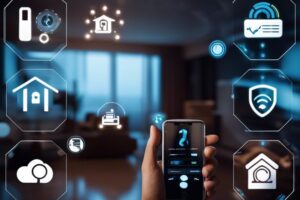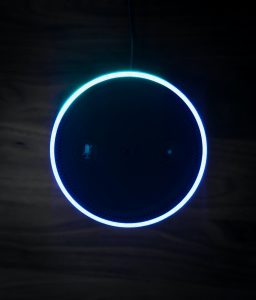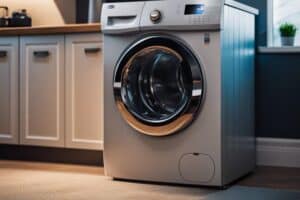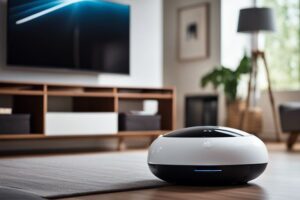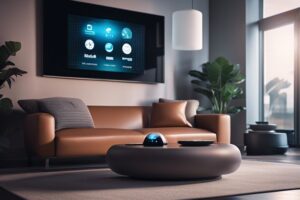Are you aware of the potential privacy concerns that come with using smart home gadgets? Your convenience and comfort could be putting your personal information at risk. According to a recent article by ISACA, there are Five Common Privacy Problems in an Era of Smart Devices that you need to be mindful of. From data breaches to unauthorized access, it is crucial to understand the potential risks associated with using smart home gadgets in order to protect your privacy and security.
Key Takeaways:
- Data Security: One of the main concerns of using smart home gadgets is the potential risk of data security breaches, as hackers can access personal information and even control devices remotely.
- Privacy Invasion: Smart home gadgets collect a vast amount of data on personal habits, routines, and preferences, raising concerns about invasion of privacy and potential misuse of this information.
- Third-Party Access: There is a risk of third-party companies or service providers gaining access to the data collected by smart devices, potentially leading to privacy violations and exploitation of personal information.
- Surveillance Risks: Smart home gadgets equipped with cameras and microphones can be vulnerable to surveillance risks, as unauthorized individuals could potentially access live feeds or recorded data.
- Legal and Regulatory Issues: The use of smart home gadgets raises questions about legal and regulatory frameworks, as there may be inadequacies in protecting individuals’ privacy rights and holding accountable those who misuse personal data.
Understanding Smart Home Technology
Smart home technology refers to the integration of various devices and systems within your home to provide automation, control, and monitoring capabilities. These gadgets are designed to make your life more convenient, efficient, and secure. However, they also raise potential privacy concerns that you need to be aware of.
Definition and Functionality
Smart home devices, such as smart thermostats, security cameras, and voice assistants, are equipped with sensors, processors, and wireless communication technologies. These gadgets enable you to remotely monitor and control various functions in your home, such as adjusting the temperature, checking on your pets, or controlling your home entertainment systems.
Types of Smart Gadgets and Their Uses
There is a wide range of smart gadgets available for different purposes in a smart home. These include smart doorbells for enhanced security, smart light bulbs for energy efficiency, and smart locks for convenient access control. Perceiving their uses varies, including automating routine tasks, enhancing security, and improving energy efficiency.
| Type of Smart Gadget | Functionality |
|---|---|
| Smart Doorbells | Enhanced security with video doorbell functionality |
| Smart Light Bulbs | Energy-efficient lighting with remote control capabilities |
| Smart Locks | Convenient access control with keyless entry |
| Smart Thermostats | Automated temperature control for energy savings |
| Security Cameras | Remote monitoring for enhanced home security |
Privacy Concerns in Detail
When it comes to using smart home gadgets, there are several potential privacy concerns that you need to be aware of. These devices are designed to make your life more convenient, but they also have the ability to collect and share a significant amount of personal data. In this section, we will delve into the specific privacy concerns related to the use of smart home gadgets.
Data Collection and Usage
One of the most significant privacy concerns associated with smart home gadgets is the collection and usage of your personal data. These devices are constantly gathering information about your habits, preferences, and lifestyle. This data can be used by the device manufacturer, third-party companies, or even hackers to build a detailed profile of you. For example, your smart thermostat might track when you are home and when you are away, while your smart speaker may record your conversations. This data can then be used for targeted advertising, sold to other companies, or even used for malicious purposes.
Security Vulnerabilities and Risks
Smart home gadgets are also susceptible to security vulnerabilities and risks, which can pose a significant threat to your privacy. For instance, if these devices are not properly secured, they can be hacked, giving attackers access to your personal information and even control over your smart home. Moreover, many smart devices lack proper security updates and are often not equipped with robust security measures, making them an easy target for cybercriminals.
Third-Party Access and Control
Another privacy concern related to smart home gadgets is the potential for third-party access and control. When you connect these devices to third-party apps or services, you may be unknowingly granting them access to your personal data and even control over your smart home system. This can lead to a loss of privacy and potentially compromise the security of your home.
Eavesdropping and Surveillance Capabilities
Smart home devices with audio and video capabilities raise concerns about eavesdropping and surveillance. For instance, your smart camera or smart speaker may inadvertently record your private conversations or activities, posing a threat to your privacy. Moreover, if these devices are compromised, they can be used for illicit surveillance by malicious actors.
Potential for Data Breaches
The potential for data breaches is also a major privacy concern when it comes to using smart home gadgets. If the security of these devices is compromised, hackers can gain access to your personal data, putting your privacy at risk. This can result in significant harm, including identity theft, financial fraud, and invasion of privacy.
Mitigating Privacy Issues
As a smart home user, it’s crucial to be aware of the potential privacy concerns associated with using smart home gadgets. To safeguard your privacy and security, you can take various measures to mitigate the risks. By following some best practices, staying informed about regulatory measures and legal frameworks, keeping up with advances in technology for privacy protection, and expecting a proactive role from manufacturers, you can significantly enhance the privacy and security of your smart home setup.
Best Practices for Users
When it comes to mitigating privacy concerns with smart home gadgets, there are some best practices you can adopt. These include regularly updating the firmware and software of your devices, securing your Wi-Fi network with a strong password, enabling two-factor authentication wherever possible, and being cautious about the permissions you grant to third-party apps. Additionally, it’s advisable to invest in a reputable VPN service that offers encryption and secure connection for all your internet-enabled devices. For more detailed security tips, you can refer to Security tips for your smart home.
Regulatory Measures and Legal Framework
Understanding the regulatory measures and legal framework surrounding smart home technology is essential for protecting your privacy. Keep yourself informed about data protection laws and regulations in your region, as well as any industry standards and guidelines that apply to smart home devices. By staying abreast of legal developments, you can hold companies accountable for handling your personal data and ensure that your rights are protected.
Advances in Technology for Privacy Protection
Advances in technology provide promising solutions for addressing privacy concerns in smart homes. From encryption and secure communication protocols to robust authentication mechanisms, there are innovative tools and techniques being developed to enhance privacy protection. As a smart home user, you should leverage these advancements by investing in devices and services that prioritise privacy and security features, such as end-to-end encryption and secure data storage.
Role of Manufacturers in Ensuring Privacy
Manufacturers play a pivotal role in ensuring the privacy of smart home users. You should look for products from reputable companies that are committed to transparent data practices and privacy by design. Prioritise devices that offer clear privacy settings, provide regular security updates, and have a track record of responding to privacy vulnerabilities promptly. By choosing products from responsible manufacturers, you can minimise the risks associated with using smart home gadgets.
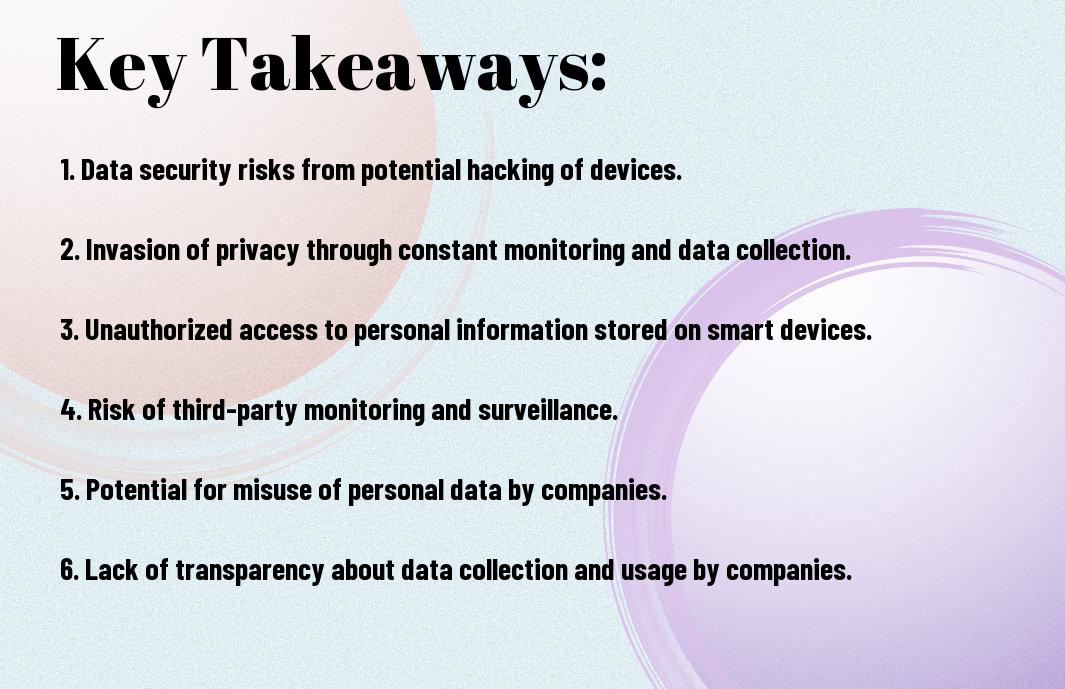
Conclusion: Potential Privacy Concerns with Smart Home Gadgets
With these considerations in mind, it is important to be aware of the potential privacy concerns that come with using smart home gadgets. Your personal data and information could be at risk of being hacked or accessed without your consent, leading to potential breaches of privacy. It is crucial to carefully review the privacy policies and security features of any smart home devices you bring into your home, and to take steps to secure your network and devices against potential threats. By staying informed and vigilant, you can enjoy the convenience and benefits of smart home technology while protecting your privacy.
Smart Home Gadgets Privacy Concerns FAQ
Q: What are the potential privacy concerns associated with using smart home gadgets?
A: The potential privacy concerns associated with using smart home gadgets include data collection and storage, potential hacking and security breaches, and the risk of unintended data sharing with third parties.
Q: How do smart home gadgets collect and store data?
A: Smart home gadgets collect and store data through various means, such as voice commands, video recordings, and sensor data. This data is often stored in the cloud or on the device itself.
Q: What are the risks of potential hacking and security breaches with smart home gadgets?
A: Smart home gadgets can be vulnerable to hacking and security breaches, which can lead to unauthorized access to personal data, live video feeds, or control of the devices themselves.
Q: How can unintended data sharing with third parties occur with smart home gadgets?
A: Unintended data sharing with third parties can occur through weak privacy settings, data-sharing agreements between smart home gadget manufacturers and third-party companies, or through the misuse of data by the manufacturers themselves.
Q: What steps can be taken to protect privacy when using smart home gadgets?
A: To protect privacy when using smart home gadgets, it is important to regularly update device firmware, use strong and unique passwords, enable two-factor authentication, review and adjust privacy settings, and be cautious about granting access to third-party apps or services.
Q: Are there regulations or standards in place to address privacy concerns with smart home gadgets?
A: In some regions, there are regulations and standards in place to address privacy concerns with smart home gadgets, such as the General Data Protection Regulation (GDPR) in the European Union and the California Consumer Privacy Act (CCPA) in the United States.
Q: What should consumers consider before purchasing and using smart home gadgets?
A: Before purchasing and using smart home gadgets, consumers should consider the privacy policies and practices of the manufacturers, the potential risks and benefits of using the devices, and the level of control they have over their personal data when using the gadgets.


